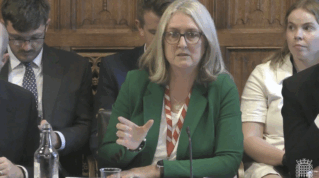The number of people covered by devolved skills budgets is set to increase rapidly with six new potential regions announced last week.
The regions were placed on the government’s “devolution priority programme” with a view to taking control of an adult skills budget after local mayors are elected in 2026.
If all six go ahead it is estimated only 20 per cent of England’s population will live in non-devolved areas.
The number of authorities with local control of skills budgets was already due to double to 20 by 2026, under devolution deals agreed under the previous government.
A total of 26 will operate if the latest deals succeed for Cumbria, Cheshire and Warrington, Norfolk and Suffolk, Greater Essex, Sussex and Brighton, and Hampshire and the Solent.
Devolved funding distribution
The amount of money each devolved area gets is based on the number of learners living in that region in the 2017-18 academic year, the year before skills devolution began.
This formula has remained unchanged for the last seven years.
It means regions housing 43 per cent of the population receive 60 per cent of the adult education budget.
A DfE spokesperson did not respond when asked if the formula will be reviewed or updated.
They also declined to share the 2017-18 learner numbers broken down by region, arguing the information cannot be published as it has not been collated or quality assured.
In the next two years, the portion of adult education funding devolved to local areas is set to grow from 60 per cent (about £828 million) to at least 70 per cent.
This figure could be higher but skills budgets are not yet available for Buckinghamshire.
This summer, York and North Yorkshire, the East Midlands and Cornwall will begin commissioning a combined budget of £73 million.
Next year seven more authorities will be handed control.
The Labour government’s approach to devolution, outlined in its recent white paper, may also result in delays to some of the deals struck under the Conservatives.
The white paper makes clear the government prefers local and combined authorities led by directly elected mayors, who can “use their mandate for change to take difficult decisions”.
Areas such as Surrey previously agreed to a deal that did not involve becoming a mayoral combined authority, but have now indicated they want to reorganise their 11 council areas into a “simpler” system.
There are also ongoing discussions for Devon and Torbay, which already has a non-mayoral devolution deal, joining forces with Plymouth City Council and possibly Cornwall.
Ringfencing dismantled
The white paper also set out rules on gradually increasing flexibilities the devolved areas will have over spendings.
This year, “trailblazer” combined authorities Greater Manchester and West Midlands have been granted “integrated” financial settlements that allow full flexibility over how to spend adult skills funding.
This includes being able to transfer up to 10 per cent of funding between spending areas including skills, transport and housing, and up to 10 per cent across different years.
Until now, portions of funding were ringfenced for specific purposes, such as free courses for jobs and skills bootcamps.
The white paper set out a consistent framework for future devolution, with Greater Manchester and West Midlands now classed as ‘established mayoral strategic authorities’.
Liverpool City Region, West Yorkshire, South Yorkshire and the North East will follow in 2026.
Authorities only classed as ‘mayoral strategic authorities’ will not be eligible for integrated settlements, but will see ringfencing of their adult education funding pots stop from 2026-27.
‘Foundation strategic authorities’, the lowest level of devolved authority which lack directly elected mayors, will continue to be subject to ringfencing for adult education funding.

















Your thoughts